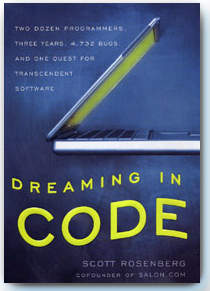It’s time again for a check and analysis of the download trends of the build.rockbox.org web site, with comparisons with how things were at my previous count from October 2007.
During this month, 112034 downloads were counted, which is almost a 10% increase since october’s 102127 – and as you’ll see below almost the entire increase was basically due to a boosted interest in the Sansa E200. There’s been no new port offered for download during this time, there are still 26 packages. The downloads were distributed as follows (the position changes are within () and the previous period’s download counts are within []):
- (+1) sansae200 27325 [18788]
- (-1) ipodvideo 21453 [20721]
- (+1) ipodvideo64mb 13904 [12780]
- (-1) ipodnano 13419 [13228]
- (+7) sansac200 3490 [2841]
- (-) gigabeatf 3410 [3522]
- (+1) ipodcolor 3316 [3287]
- (-3) h300 3306 [3614]
- (+2) ipod4gray 3249 [2896]
- (-1) ipodmini2g 3087 [3083]
- (-4) iaudiox5 2933 [3340]
- (-2) h120 2521 [2924]
- (+1) ipod3g 1993 [1624]
- (-1) ipodmini1g 1713 [1647]
- (+1) h10_5gb 1458 [1524]
- (-1) h10 1413 [1624]
- (-) ipod1g2g 1246 [1384]
- (-) player 730 [834]
- (-) recorder 558 [692]
- (-) iaudiom5 380 [422]
- (+1) h100 328 [345]
- (-1) recorder8mb 292 [354]
- (+1) fmrecorder 189 [222]
- (-1) recorderv2 175 [222]
- (-) ondiofm 96 [113]
- (-) ondiosp 50 [96]
Of course, if we count the two different ipod video builds combined, it alone is 35357 downloads (31.6%)! Apart from the E200 climb, I think the only significant change in the table above is the other SanDisk player in the selection, the Sansa C200 series which climed 7 positions due to its 23% download increase.
The top-5 downloads are all portalplayer based, and here’s a more complete look at how the builds are split up on main architectures (october’s shares within parentheses):
- portalplayer 97066 downloads 86.6% (83.6%)
- coldfire 9468 downloads 8.45% (10.4%)
- samsung 3410 downloads 3.0% (3.4%)
- sh1 2533 downloads 1.9% (2.5%)
The harddrive based builds are still more popular, but the flash ones are gaining:
- HDD models 67654 downloads 60.4% (65.7%)
- flash models 44380 downloads 39.6% (34.5%)
The top-8 downloads are for targets featuring color LCDs, and thy certainly are popular when checking download spread on target LCD types:
- Color 92494 downloads (82.6%)
- Greyscale 17450 downloads (15.6%)
- Monocrome 1360 downloads (1.2%)
- Charcell 730 downloads (0.7%)
Like last time, this doesn’t include any custom builds, builds from download.rockbox.org nor release builds from www.rockbox.org. Take all this as indications, not absolute facts.







 File good bug reports for bugs. Make an effort to really double-check the details, write up repeat recipes, try to repeat others’ reported bugs, fill in more details on the sparsely reported ones. Tell us when you can’t repeat already reported ones. We have so
File good bug reports for bugs. Make an effort to really double-check the details, write up repeat recipes, try to repeat others’ reported bugs, fill in more details on the sparsely reported ones. Tell us when you can’t repeat already reported ones. We have so